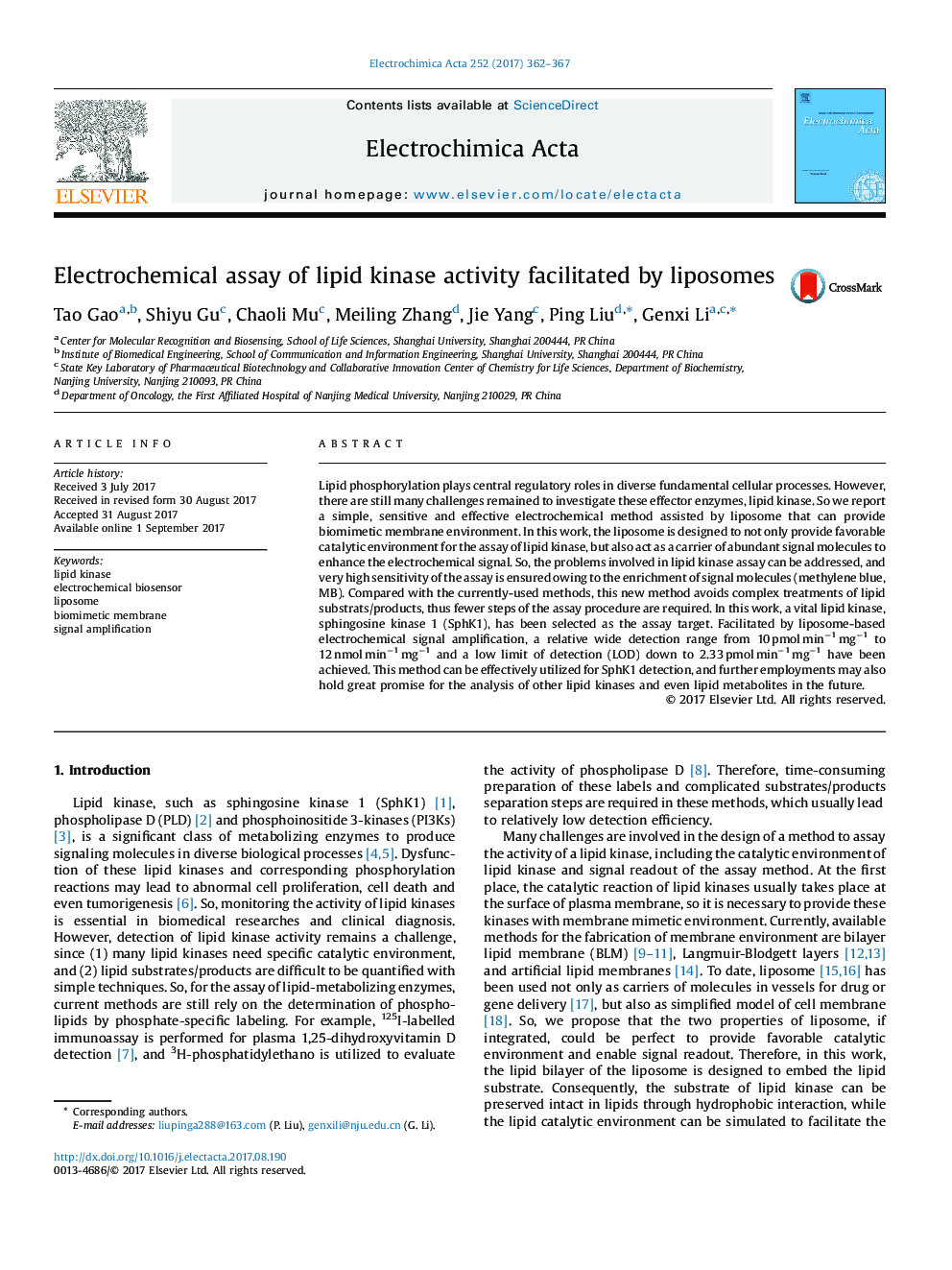| Article ID | Journal | Published Year | Pages | File Type |
|---|---|---|---|---|
| 6470307 | Electrochimica Acta | 2017 | 6 Pages |
Lipid phosphorylation plays central regulatory roles in diverse fundamental cellular processes. However, there are still many challenges remained to investigate these effector enzymes, lipid kinase. So we report a simple, sensitive and effective electrochemical method assisted by liposome that can provide biomimetic membrane environment. In this work, the liposome is designed to not only provide favorable catalytic environment for the assay of lipid kinase, but also act as a carrier of abundant signal molecules to enhance the electrochemical signal. So, the problems involved in lipid kinase assay can be addressed, and very high sensitivity of the assay is ensured owing to the enrichment of signal molecules (methylene blue, MB). Compared with the currently-used methods, this new method avoids complex treatments of lipid substrats/products, thus fewer steps of the assay procedure are required. In this work, a vital lipid kinase, sphingosine kinase 1 (SphK1), has been selected as the assay target. Facilitated by liposome-based electrochemical signal amplification, a relative wide detection range from 10 pmol minâ1 mgâ1 to 12 nmol minâ1 mgâ1 and a low limit of detection (LOD) down to 2.33 pmol minâ1 mgâ1 have been achieved. This method can be effectively utilized for SphK1 detection, and further employments may also hold great promise for the analysis of other lipid kinases and even lipid metabolites in the future.
Graphical abstractA liposome-based electrochemical biosensor has been first proposed for lipid kinase activity, which ensures simplicity, sensitivity and efficiency.Download high-res image (119KB)Download full-size image
